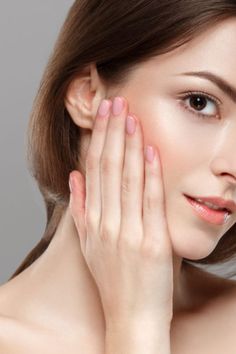Skin Practical
Skin problems are common concerns that affect individuals of all ages and backgrounds, impacting not only physical appearance but also emotional well-being and quality of life. From acne and eczema to psoriasis and skin cancer, dermatological conditions encompass a wide range of issues that require careful evaluation and management. In this class note, we will explore common skin problems, their underlying causes, and evidence-based solutions aimed at promoting skin health and addressing specific concerns.

Common Skin Problems:
- Acne: Acne is a chronic inflammatory skin condition characterized by the formation of comedones (blackheads and whiteheads), papules, pustules, and cysts. It often affects areas rich in sebaceous glands, such as the face, chest, and back, and is commonly associated with hormonal changes during puberty. Factors contributing to acne include excess sebum production, clogged hair follicles, bacterial overgrowth (Propionibacterium acnes), inflammation, and hormonal imbalances.
- Eczema (Atopic Dermatitis): Eczema is a chronic inflammatory skin disorder characterized by dry, itchy, and inflamed patches of skin. It is believed to result from a combination of genetic, environmental, and immune factors, with triggers such as allergens, irritants, stress, and climate contributing to flare-ups. Eczema typically presents in childhood but can persist into adulthood, affecting various areas of the body, including the face, hands, and flexural surfaces.
- Psoriasis: Psoriasis is a chronic autoimmune condition characterized by the rapid turnover of skin cells, leading to the formation of thick, red, scaly patches known as plaques. It is thought to result from an overactive immune response, with genetic and environmental factors playing a significant role in disease development. Psoriasis can affect any part of the body, including the scalp, elbows, knees, and nails, and is associated with symptoms such as itching, burning, and pain.
- Rosacea: Rosacea is a chronic inflammatory skin condition characterized by facial redness, flushing, visible blood vessels, and papules or pustules resembling acne. It typically affects adults aged 30 to 50 years and is more common in individuals with fair skin. Triggers such as sunlight, heat, alcohol, spicy foods, and emotional stress can exacerbate rosacea symptoms, leading to flare-ups and discomfort.
- Skin Cancer: Skin cancer occurs when abnormal cells grow uncontrollably in the skin, often as a result of prolonged exposure to UV radiation from the sun or tanning beds. The most common types of skin cancer are basal cell carcinoma, squamous cell carcinoma, and melanoma, the latter being the most aggressive form. Risk factors for skin cancer include fair skin, history of sunburns, family history of skin cancer, immunosuppression, and UV radiation exposure.

Evidence-Based Solutions:
- Topical Treatments: Topical treatments are often the first line of defense for managing common skin problems such as acne, eczema, and psoriasis. These treatments may include topical antibiotics, retinoids, corticosteroids, calcineurin inhibitors, and vitamin D analogs, which help reduce inflammation, normalize cell turnover, and alleviate symptoms. Topical treatments should be used as directed by a healthcare professional and may be combined with other therapies for optimal results.
- Oral Medications: In cases where topical treatments are ineffective or insufficient, oral medications may be prescribed to manage severe or refractory skin conditions. Oral antibiotics, oral retinoids, immunosuppressants, and biologic agents may be used to target underlying inflammatory pathways, modulate immune responses, and improve disease control. Oral medications should be used under the supervision of a dermatologist or healthcare provider due to potential side effects and monitoring requirements.
- Phototherapy: Phototherapy, or light therapy, involves exposing the skin to ultraviolet (UV) radiation to reduce inflammation and slow down abnormal cell growth. Phototherapy is commonly used to treat psoriasis, eczema, vitiligo, and certain other skin conditions, with different wavelengths of light (UVB, UVA) and delivery methods (narrowband UVB, PUVA) available depending on the specific condition and individual response.
- Lifestyle Modifications: Lifestyle modifications play a crucial role in managing and preventing skin problems, especially those exacerbated by environmental factors and lifestyle choices. Strategies such as sun protection (sunscreen, protective clothing, avoiding peak sun hours), stress management, smoking cessation, dietary changes (limiting trigger foods, increasing antioxidant-rich foods), and skincare practices (gentle cleansing, moisturizing, avoiding harsh products) can help improve skin health and reduce the frequency and severity of flare-ups.
- Surgical and Procedural Interventions: In cases of skin cancer or severe skin problems resistant to conventional treatments, surgical and procedural interventions may be necessary to remove abnormal tissue, repair damaged skin, or alleviate symptoms. Surgical options include excisional surgery, Mohs micrographic surgery, and laser therapy, while procedural interventions such as chemical peels, microdermabrasion, and cryotherapy may be used for cosmetic enhancement or adjunctive treatment.

Conclusion: In conclusion, understanding common skin problems and implementing evidence-based solutions are essential for promoting skin health and improving the quality of life for individuals affected by dermatological conditions. By addressing underlying causes, managing symptoms, and preventing exacerbations through a comprehensive approach that combines topical treatments, oral medications, phototherapy, lifestyle modifications, and surgical interventions as needed, healthcare professionals can help patients achieve optimal outcomes and maintain healthy, radiant skin throughout their lives.


